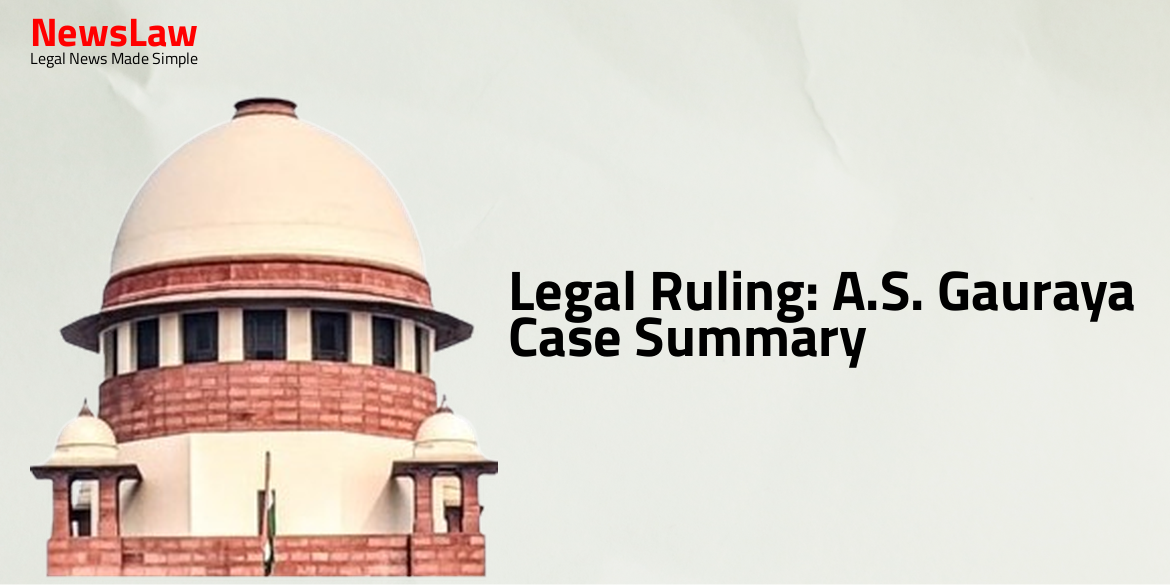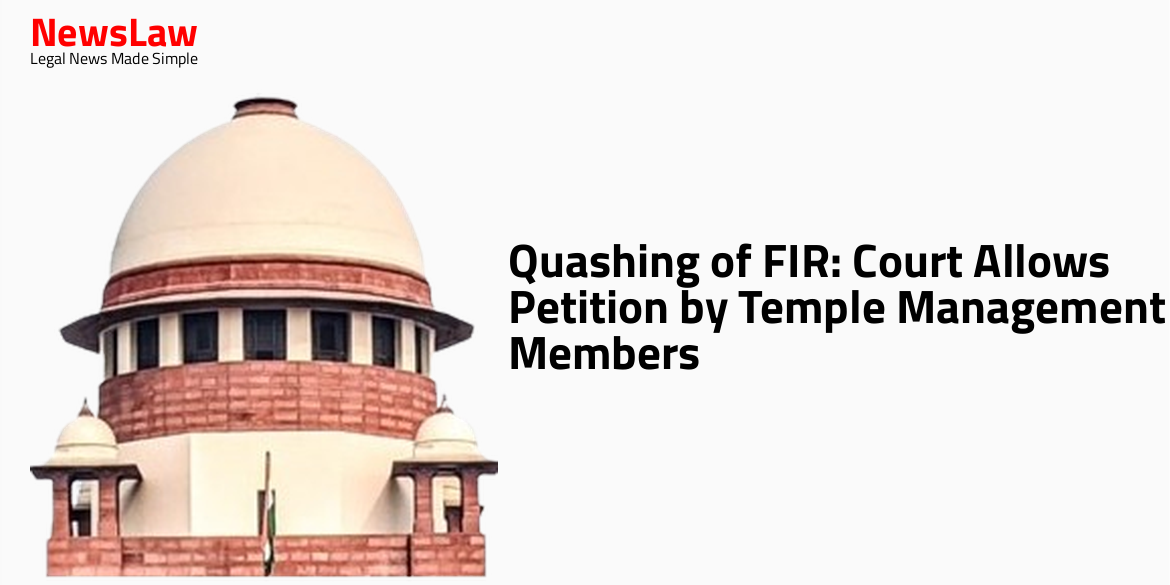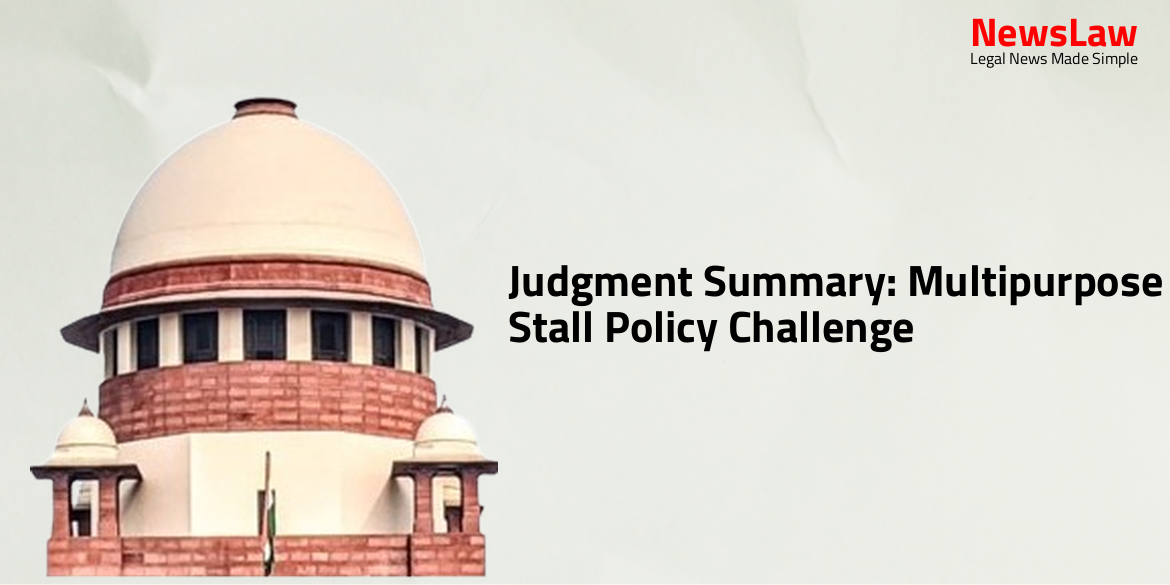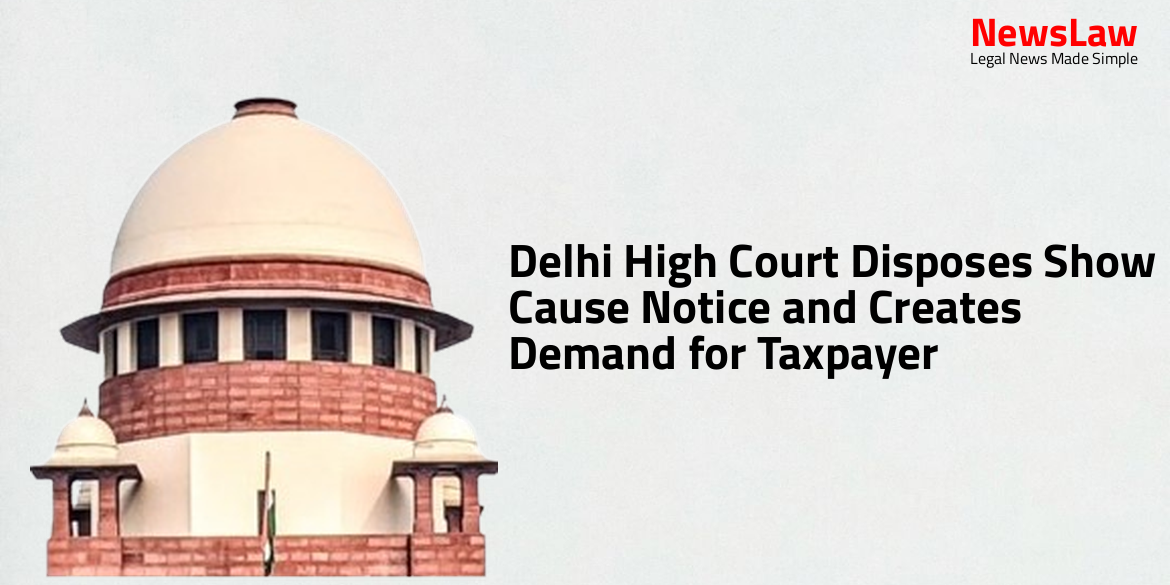Exploring the landmark judgment in the A.S. Gauraya case by the Delhi High Court. This ruling has reshaped the interpretation of inherent powers in criminal procedures, setting new precedents. Get insights into how this case impacts jurisdiction and legal remedies in the Indian legal system.
Analysis
- The subordinate criminal courts do not have inherent powers unlike Section 151 of the Civil Procedure Code.
- After the 1968 ruling, the Sub-divisional Magistrate became functus officio and had no further power on any ground.
- The discussion regarding this matter is considered misplaced in the context.
- The Code of Criminal Procedure of 1898 does not empower a Magistrate to recall or review, unlike the provision in Section 561-A for inherent powers in the High Court only.
- Subsequent proceedings following the recalling and summoning of the accused are considered null and devoid of legal effect.
- The issue raised in the petition is settled by the Supreme Court’s judgment in A.S. Gauraya.
- A Magistrate cannot exercise inherent jurisdiction in cases of complaint dismissal, discharge, or acquittal in absence of specific provisions in the Code.
- The learned Magistrate had no jurisdiction in dismissing the complaint, as the remedy for the respondent was to move the Sessions Judge or the High Court in revision.
- The suggestion that the application for recalling the dismissal would amount to a fresh complaint is refuted, and it is established that a second complaint can only be filed based on fresh facts or in special cases.
- This principle has been upheld by the Court in the case of Pramatha Nath Taluqdar v. Saroj Ranjan Sarkar [AIR 1962 SC 876].
- Section 249 of the Criminal Procedure Code allows a Magistrate to discharge the accused in the absence of the complainant under specific conditions.
- Section 256(1) enables a Magistrate to acquit the accused if a complaint is dismissed due to the complainant’s absence.
- A second complaint is permissible within limitations set by the Supreme Court.
- Reviving a dismissed complaint is not the same as filing a second complaint.
- There is no provision in the Criminal Procedure Code for the criminal court to revive a dismissed complaint.
- Magistrates can reconsider interlocutory orders during the proceedings.
Decision
- The judgment in Ibrahimsab case cannot support the respondent as it is no longer valid due to the judgment in A.S. Gauraya case by the Supreme Court.
- The Allahabad High Court’s judgment on inherent power under Section 482 of the Cr.P.C. clarifies that only the High Court, not subordinate courts, can use this power.
- The Special Judge’s judgment in this case was without jurisdiction and is set aside, along with all consequent proceedings.
- The ruling does not prevent the respondent from seeking a proper remedy for restoring the complaint through legal means.
Case Title: VAKAMULLA CHANDRASHEKHAR & ORS. Vs. REGISTRAR OF COMPANIES -THROGH ITS DEPUTY REGISTRAR NCT OF DELHI AND HARYANA (2024:DHC:3915)
Case Number: CRL.M.C.-2372/2022



